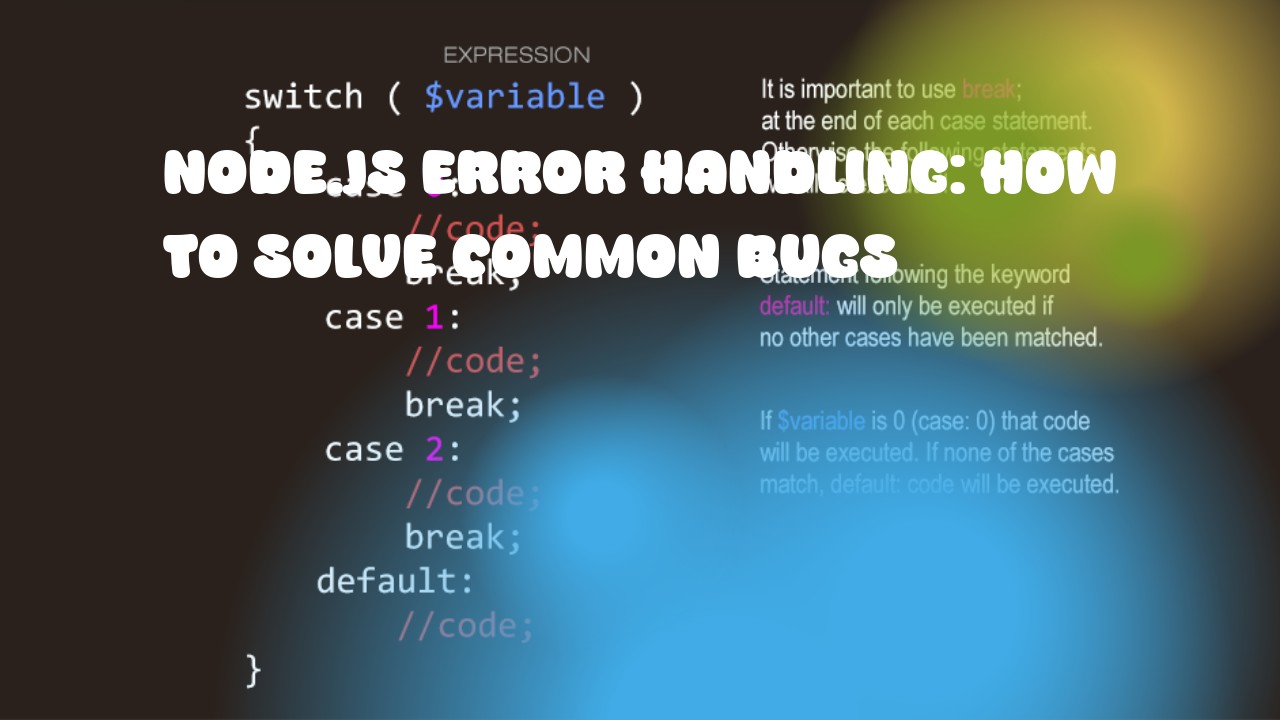Certainly! Node.js error handling is crucial for ensuring your application runs smoothly and provides helpful feedback when errors occur. Below are some common bugs you might encounter in Node.js and how to handle them using different strategies:
-
ReferenceError - This occurs when a variable is used before it's defined. For example, if
var myVaris used before it has been declared withlet MyVar = 'my value';. You can solve this by declaring the variable at the start of your code or using strict mode ('use strict';) to catch any undefined variables immediately. -
TypeError - occurs when an operation or function is performed on a value that has the wrong type. For example, attempting to call a non-function with
(), or passing a string where a number was expected. To solve this, make sure you're passing the correct types of arguments to your functions and using type-checking libraries like Lodash. -
SyntaxError - occurs when there's an error in the syntax of your code. for example, missing colons or mismatched parentheses. To solve this, review your code carefully, paying attention to syntax errors as your editor may provide hints.
-
RangeError - occurs when a function is called with an argument that's out of its valid range. For example, trying to create an array with more than 2^32-1 elements. You can handle this by ensuring you're not exceeding the maximum allowed length for your data structures.
-
ReferenceError: require is not defined - this error occurs when Node.js can't find a module that's being required in your code. This could be because the module isn't installed, or its name has been misspelled. To solve this, make sure you've installed the module using npm (Node Package Manager), and check for any typos in the module name.
-
UnhandledPromiseRejectionWarning - This is a warning message that Node.js throws when a Promise rejection isn't handled. Unhandled rejections can cause your application to crash, so it's important to handle them properly. You can do this by using the
.catch()method on any Promise or by setting up global error event handlers forunhandledRejection.
Here are a few code examples showing how you could use these techniques to handle different kinds of errors in Node.js:
- ReferenceError - Checking for undefined variables and declaring them at the start:
let MyVar = 'my value';
if (typeof MyVar === 'undefined') {
throw new ReferenceError('MyVar is not defined');
}
- TypeError - Using type-checking libraries:
const _ = require('lodash');
function doSomething(arg) {
if (!_.isString(arg)) {
throw new TypeError('Argument must be a string');
}
// rest of your code...
}
DoSomething(123); // throws TypeError: Argument must be a string
- UnhandledPromiseRejectionWarning - Global error event handler:
process.on('unhandledRejection', (err) => {
console.error(`Unhandled rejection: ${err.message}`);
});
const promise = new Promise((resolve, reject) => {
reject(new Error('Something went wrong'));
});
promise.catch((err) => {
// handle the error
});
Remember to catch and log errors as soon as you can to ensure your application doesn't crash unexpectedly.

